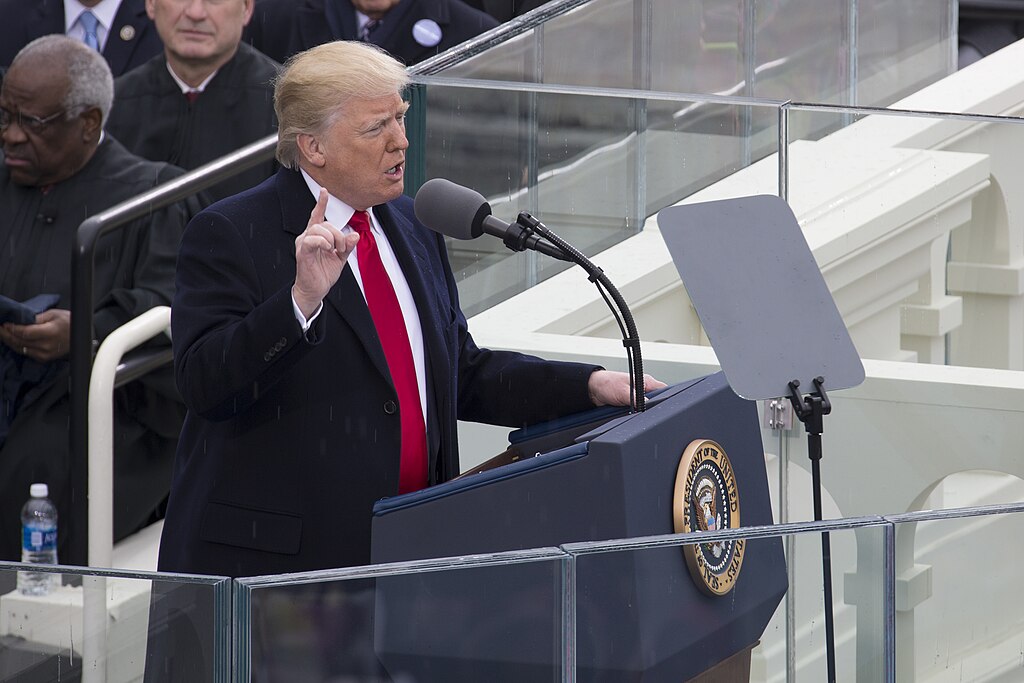President-elect Donald Trump has unveiled an ambitious plan to expand 5G technology nationwide in 2025, promising to revolutionize communication networks while sparking heated debates among policymakers, businesses, and the public. The initiative, which includes partnerships with leading telecommunications companies and significant federal investments, is expected to boost internet speeds, enhance connectivity in rural areas, and create thousands of jobs.
In a press briefing on Monday, Trump outlined his administration’s vision for making 5G a cornerstone of America’s technological infrastructure. “We are positioning the United States as the global leader in telecommunications,” he said. “This plan will ensure every American, no matter where they live, has access to the fastest internet available.”
The 5G expansion plan will prioritize building new infrastructure, retrofitting existing networks, and addressing cybersecurity concerns. However, critics argue that the strategy overlooks environmental risks, potential health concerns, and the growing issue of data privacy.
Key Initiatives: Federal Funding and Private Partnerships
The administration’s plan involves a multi-faceted approach. First, it pledges $20 billion in federal funding to incentivize telecom companies to expand coverage in underserved rural and urban areas. This will include constructing new cell towers and enhancing fiber-optic networks to ensure faster, more reliable connectivity.
Second, Trump’s plan encourages public-private partnerships to accelerate deployment. Companies like Verizon, AT&T, and T-Mobile are expected to play pivotal roles in implementing the strategy. In exchange, these firms will receive tax incentives to invest in rural broadband expansion, addressing a longstanding digital divide that has hindered economic development in remote areas.
Finally, the proposal emphasizes cybersecurity measures to protect against potential threats from foreign actors, particularly China. The administration plans to strengthen collaboration with national intelligence agencies to ensure the security of 5G networks.
Public Reactions: Divided Opinions on the 5G Rollout
Trump’s announcement has drawn a wide range of reactions on social media, from enthusiastic support to sharp criticism.
- @TechGuru2025: "This is what leadership looks like! Expanding 5G is a game-changer for America’s economy and innovation."
- @PrivacyHawk: "Faster internet is great, but who’s addressing the real issue here—our privacy and data security?"
- @RuralAdvocate: "Finally, rural America gets a seat at the table. Thank you, President Trump, for making this happen!"
- @GreenFutureNow: "How about addressing the environmental impact of 5G towers instead of rushing to please telecom giants?"
- @DataRightsFirst: "No plan for protecting our data. Trump’s 5G expansion is a disaster waiting to happen!"
- @5GSupporter: "This is exactly what we need to compete globally. Let’s make it happen!"
Challenges and Concerns About 5G Implementation
While the 5G expansion plan has been praised for its focus on economic growth and technological advancement, experts warn of significant challenges. Environmental groups are raising concerns about the increased energy consumption associated with 5G towers, which could exacerbate climate change.
Health advocates have also questioned the potential risks of prolonged exposure to high-frequency radiation, although studies on this topic remain inconclusive. Furthermore, cybersecurity analysts caution that expanding 5G without robust safeguards could expose the U.S. to cyberattacks, particularly from adversaries like China and Russia.
Data privacy advocates have been vocal about the lack of provisions to regulate how telecom companies handle user data. Without clear guidelines, critics fear that consumers’ personal information could be exploited for profit or surveillance.
Despite these challenges, the administration remains optimistic, emphasizing the economic benefits of 5G expansion. The initiative is projected to create 200,000 jobs by the end of 2025, particularly in construction and tech-related industries.



 Trump Says U.S. Combat Operations in Iran Will Continue Until Objectives Are Met
Trump Says U.S. Combat Operations in Iran Will Continue Until Objectives Are Met  UK Accepts U.S. Request to Use British Bases for Defensive Strikes on Iranian Missiles
UK Accepts U.S. Request to Use British Bases for Defensive Strikes on Iranian Missiles  Middle East Conflict Escalates After Khamenei’s Death as U.S., Israel and Iran Exchange Strikes
Middle East Conflict Escalates After Khamenei’s Death as U.S., Israel and Iran Exchange Strikes  U.S. Deploys Tomahawks, B-2 Bombers, F-35 Jets and AI Tools in Operation Epic Fury Against Iran
U.S. Deploys Tomahawks, B-2 Bombers, F-35 Jets and AI Tools in Operation Epic Fury Against Iran  Trump Announces U.S. Strikes on Iran Navy as Conflict Escalates
Trump Announces U.S. Strikes on Iran Navy as Conflict Escalates  U.S. Lawmakers Question Trump’s Iran Strategy After Joint U.S.-Israeli Strikes
U.S. Lawmakers Question Trump’s Iran Strategy After Joint U.S.-Israeli Strikes  Australia Rules Out Military Involvement in Iran Conflict as Middle East Tensions Escalate
Australia Rules Out Military Involvement in Iran Conflict as Middle East Tensions Escalate  Trump to Address Nation as U.S. Launches Strikes in Iran, Axios Reports
Trump to Address Nation as U.S. Launches Strikes in Iran, Axios Reports  Trump Launches Operation Epic Fury: U.S. Strikes on Iran Mark High-Risk Shift in Middle East
Trump Launches Operation Epic Fury: U.S. Strikes on Iran Mark High-Risk Shift in Middle East  Trump Says U.S. Attacks on Iran Will Continue, Warns of More American Casualties
Trump Says U.S. Attacks on Iran Will Continue, Warns of More American Casualties  AI is already creeping into election campaigns. NZ’s rules aren’t ready
AI is already creeping into election campaigns. NZ’s rules aren’t ready  Pentagon Leaders Monitor U.S. Iran Operation from Mar-a-Lago
Pentagon Leaders Monitor U.S. Iran Operation from Mar-a-Lago  Russia Signals Openness to U.S. Security Guarantees for Ukraine at Geneva Peace Talks
Russia Signals Openness to U.S. Security Guarantees for Ukraine at Geneva Peace Talks  HHS Adds New Members to Vaccine Advisory Panel Amid Legal and Market Uncertainty
HHS Adds New Members to Vaccine Advisory Panel Amid Legal and Market Uncertainty  Trump Warns Iran as Gulf Conflict Disrupts Oil Markets and Global Trade
Trump Warns Iran as Gulf Conflict Disrupts Oil Markets and Global Trade  EU Urges Maximum Restraint in Iran Conflict Amid Fears of Regional Escalation and Oil Supply Disruption
EU Urges Maximum Restraint in Iran Conflict Amid Fears of Regional Escalation and Oil Supply Disruption 































